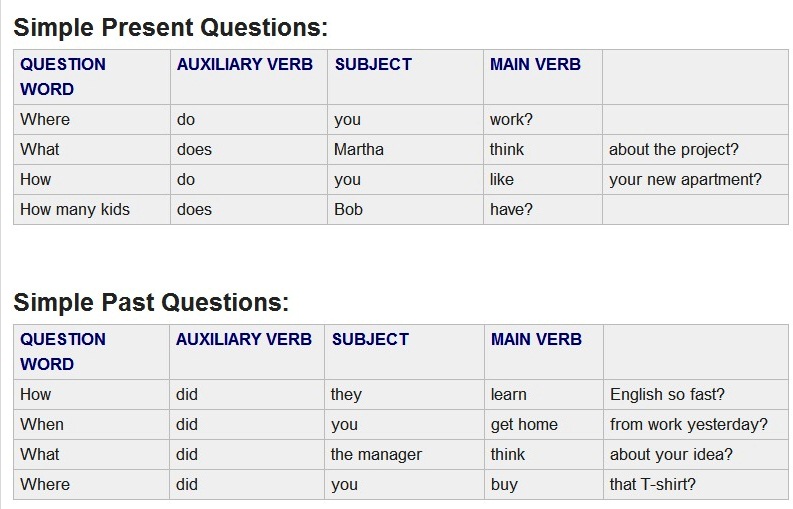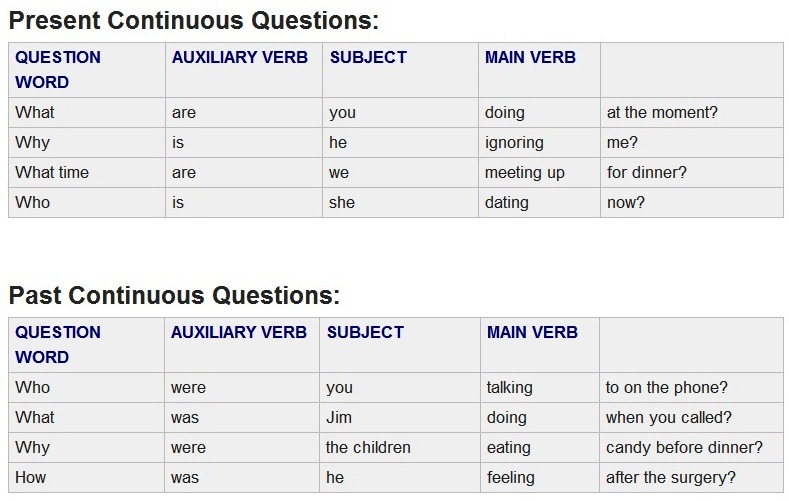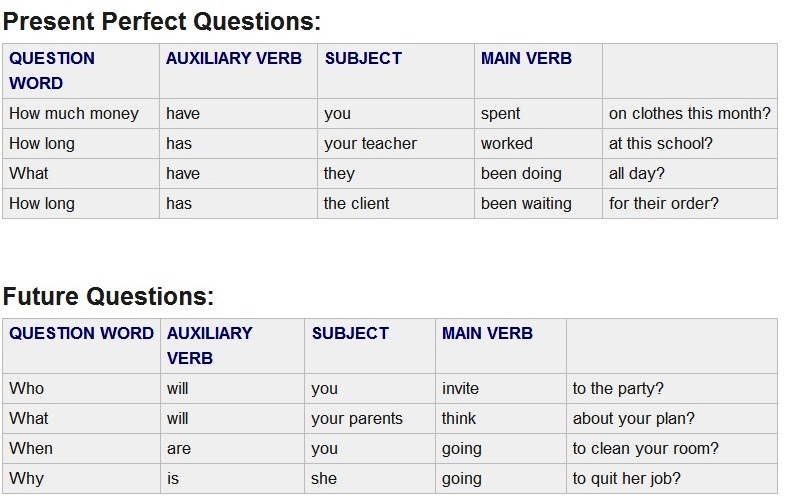 Salve! Tudo bem com você?
Salve! Tudo bem com você?
Fazer perguntas em inglês nem sempre é fácil. Por isos fui procurar uma dica para compartilhar com você e ncontrei esta dica no site Espresso English e achei tão interessante que pedi permissão para compartilhar.
A fórmula para se fazer a maioria das perguntas em inglês é QUASM:
QUestion word
Auxiliary verb
Subject
Main verb
Veja alguns exemplos com vários tempos verbais:




Exceções:
As Yes/No questions não usam uma question word (pronome interrogativo) mas ainda siguem o modelo ASM (Auxiliary verb – Subject – Main verb). Alguns exemplos:
Do you like bananas?
Did you enjoy the movie?
Are you studying English?
Were you sleeping when I called you last night?
Have you finished your homework?
Will you call me when you get home?
Are you going to accept the job offer?
Should we take the early morning flight?
As perguntas onde o verbo principal é “be” também não seguem esse padrão:
Are you thirsty?
Is she a teacher?
Were your parents angry when you failed the test?
Was her ex-boyfriend a basketball player?
Clique aqui para ler o artigo original no site Espresso English.










Comments:
Joshua Cashill:
Oh, I was hoping you would have found a simple solution to this problem! But, alas, the question of questions still remains! You covered many of the question forms, but by my count there are 9 or 10 different structures to use for forming questions in English, and only ONE in Portuguese. Sorry, everyone.
You must include in your next post a little about questions where you are looking for the subject of the answer, where there is no inversion. Ex:
QUESTION
“Who ate the cake?” (NOT “Who did eat the cake?”)
ANSWER
“John ate the cake?” (“John” is the subject)
I think you should also include tag questions, don’t you?
Not to mention embedded questions. Do you know what embedded questions are, everybody? Let’s see who can figure it out!
And declarative questions?
And let’s not forget questions that begin with “How come”. How come they don’t follow the rules?
Aaarrghh! Você estava sendo muito bonzinho dizendo que fazer perguntas em inglês às vezes é difícil! É difícil praca!